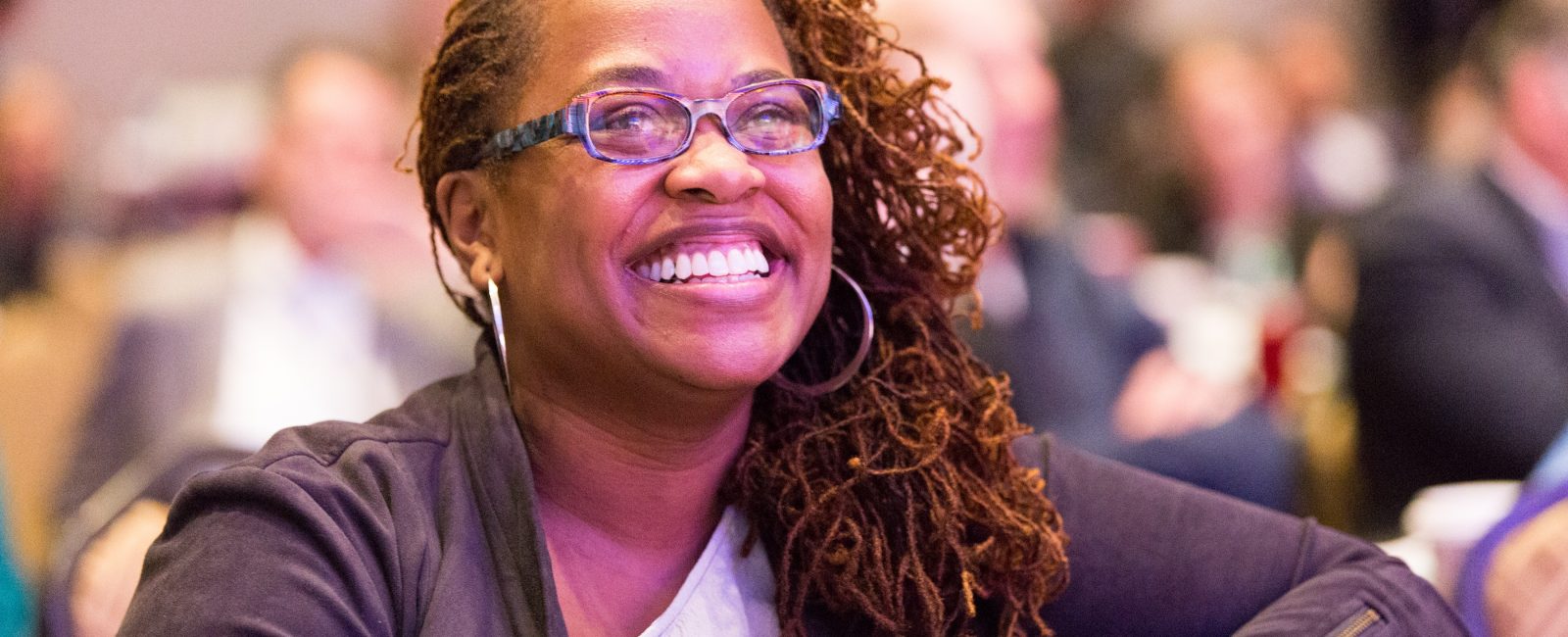
By Andre LaFontant
Tulaine Montgomery’s soul booms as if expressed through a megaphone. The authority of her words serves to amplify their metronome-informed flow. Indeed, the Co-CEO of New Profit—a venture philanthropy organization supporting social entrepreneurs building solutions to advance equity and opportunity in America —possesses the gift of identifying the rhythm of ideas and building upon them in order to produce breakthrough innovations birthed from communities of color.
“My father was an ethnomusicologist, becoming a master drummer within the African tradition, so music is in my DNA,” she begins. “The drum is like the pulse of society in the African Diaspora and so I’m always listening to the rhythm of things that are happening around me whether it’s business projects, events, or research efforts. Things that, to the untrained eye, don’t seem related at all but seem linked to me.”
This cultivated approach allows Montgomery to break down the construct of race in America and how it affects the crux of what New Profit aims to combat: the ways in which systemic racism prevents America from reaching its full potential —creating gaps in access to education and economic mobility, shaking the foundation of democracy, and preventing the very people with the knowledge and lived experience to solve these problems from getting the resources and support they need from the philanthropic sector. “The construct of race was created as a pathway to poverty for specific groups of people,” she explains. “If we want something better, it’s imperative that we learn and honor the true history of this country in order to understand just how divided we have been designed to be in society.”
Always seeking subtle complexities, Montgomery respectively refuses the surface-level entanglement between race and racism. She explains that “I’m really interested whenever things are presented as a solid or binary. My first inclination is to try to understand what’s the nuance and what’s the flexibility of movement, so race and racism is a good example. While race is a construct, racism is real and hardwired into our systems and structures. How do you fight against racism while holding that race is made up? Contradicting things like that fascinate me. How do we get clear about what’s real and what’s imagined in order to architect something new?”
Montgomery believes with optimistic fervor that inclusivity and acceptance within society are as much an inward-looking process as an outward. Within prescribed groups of people, therein lies further layers of discovery and cause for celebration. “One of the most critical things we can do, not only as people of African descent but as citizens of the world,” she begins, “is to not buy not into and reject the idea of a monolith. We need to disregard the deficit narratives that we’ve been told about each other that only serve the purpose of separation, and only serve the purpose to undermine our capacity for collective victory.”
The world is fortunate to have people like Tulaine Montgomery. Her grounded optimism has proven time and again to allow for the success of burgeoning leaders that otherwise would be hard-pressed to have their voices heard. “I believe that you can create powerful things in this lifetime and in this world,” she explains. “I also believe you have to tell yourself the truth and look with an unblinking eye at the realities that you’re navigating. The only way we can build real coalitions across identity is if people can come with love and a genuine understanding of who they are. As a Black woman, I have unshakable faith in the power and genius of my lineage. I see it as part of my life’s work to take this gift that my family gave me and make sure to spread that knowledge to as many people as I possibly can.”


